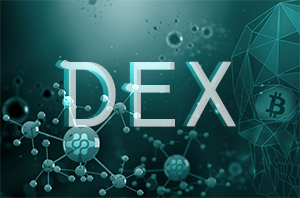
You must have surely tried once to register on a Cryptocurrency Exchange site, for example, to buy Bitcoins or other digital currencies. If you've done it, you may have noticed that it's not a joke...
Also, if you have had some experience moving large amounts from or to an exchange, you will have found different withdrawal/deposit limits and problems related to the KYC form.
In short, the exchanges (which are the safest and most immediate way to buy Cryptocurrencies, once they have been registered), they are not more easy to use.
Indeed, many people who have approached this world for the first time were slowed down by the registration procedures required by the exchanges. These procedures are really necessary and often obligatory for two reasons:
1. To guarantee the account’s security in order to avoid the stealing of funds;
2. Comply with the laws against money laundering (AML and KYC), especially if the exchanges also allowed the use of traditional fiduciary currencies (EUR, USD, etc.).
Decentralized exchanges (also called DEX) completely surpass these two obstacles, because they are platforms not managed by third parties.
Currently, there are some operating DEXs, but they have a big problem: The low (or very low) liquidity that makes exchanges are not efficient enough (it is often difficult to find a counterpart that proposes prices in line with quotes from the market or there are proposals to buy/sell in small quantities). For example, StellarX, a newly created DEX, has very low negotiating volumes, almost irrelevant, despite having no commission costs in the trade.
The solution is to create DEX that are "connected " to existing exchanges, and with large volumes of exchanges, to solve once and for all the problem of its low liquidity (in this case provided by the large traditional centralized exchange to which they are connected).
3 reasons why decentralized exchanges are revolutionary
But why are the DEX revolutionaries?
- The first reason is already explained: Registration will be fast and easy, as in Cryptocurrency10. In short, DEX eliminates entry barriers, and this will be a significant advantage, especially for newbies.
- The second reason is more sophisticated: The DEX will not necessarily be a website for the exchange of Cryptocurrencies but can as well be a software to install on our devices. The advantage? Keeps all your funds in your own wallet and does not have to move them to another place.
In today's centralized exchanges, your funds are, in fact, maintained by the exchange. If it closes, fails or is hacked, you run the risk of losing all assets and the money you have deposited in it. Instead, with a DEX, all your funds can be on your device... (i.e., you administer it yourself and no need to be administered by third parties.) - The third reason is a bit controversial. In other words, the lack of AML and KYC procedures makes DEX to be used freely, without limits or obstacles, for any person, anywhere in the world. Therefore, everything that can’t be done on centralized platforms due to the limits imposed, for example, by the laws against money laundering, in the DEX, they can be made freely, without any possibility of being blocked. The scope of this consequence could be really revolutionary, but not necessarily positive.
But it must be added that real DEX works with Cryptocurrencies and not the fiduciary currencies. Of course, thanks to the so-called "stable coins" It is possible to use within a DEX a Cryptocurrency that “represents” a fiduciary currency, but at the moment of it conversion to real fiduciary currency, it could activate the AML and KYC controls. In addition, many Cryptocurrencies already permits absolute financial freedom, regardless of the exchanges, so the scope of the risks associated with the total deregulation of the DEX could be limited (but the probation is imperative).
On the other hand, however, as well as Bitcoin, there is no way to stop the DEX's progress, so, whether we like it or not, in the future, its usage will increase more and more and experts believes that, in a few years, even traditional and centralized exchanges will be replaced. In short, probably in the future, it will be necessary to find other ways to fight money laundering (remembering that all transactions performed on a DEX are recorded in a public Blockchain).
Do you want to invest in cryptocurrencies?
We offer you the weekly portfolio CryptoFIB30, in a PDF format. A portfolio of cryptocurrencies with high earning prospects, suggested by our staff (the dates and purchase prices for the reported crypotos in addition to operative signals - when to sell or keep - are indicated).
Bitcoin Future: for those who prefer, instead, to follow the derivative, Bitcoin Future is analyzed, quoted on the CME, with the indication of important levels and operative targets of purchase/sale with a weekly perspective.
Pay
Risk warnings
The views and opinions expressed are the views of Crypto Currency 10 and are subject to change based on market and other conditions. The information provided does not constitute investment advice and it should not be relied on as such. All material(s) have been obtained from sources believed to be reliable, but its accuracy is not guaranteed. There is no representation or warranty as to the current accuracy of, nor liability for, decisions based on such information.
Changes in rates of exchange may have an adverse effect on the value, price or income of an investment.
Past performance is no guarantee of future results and the value of such investments and their strategies may fall as well as rise.

